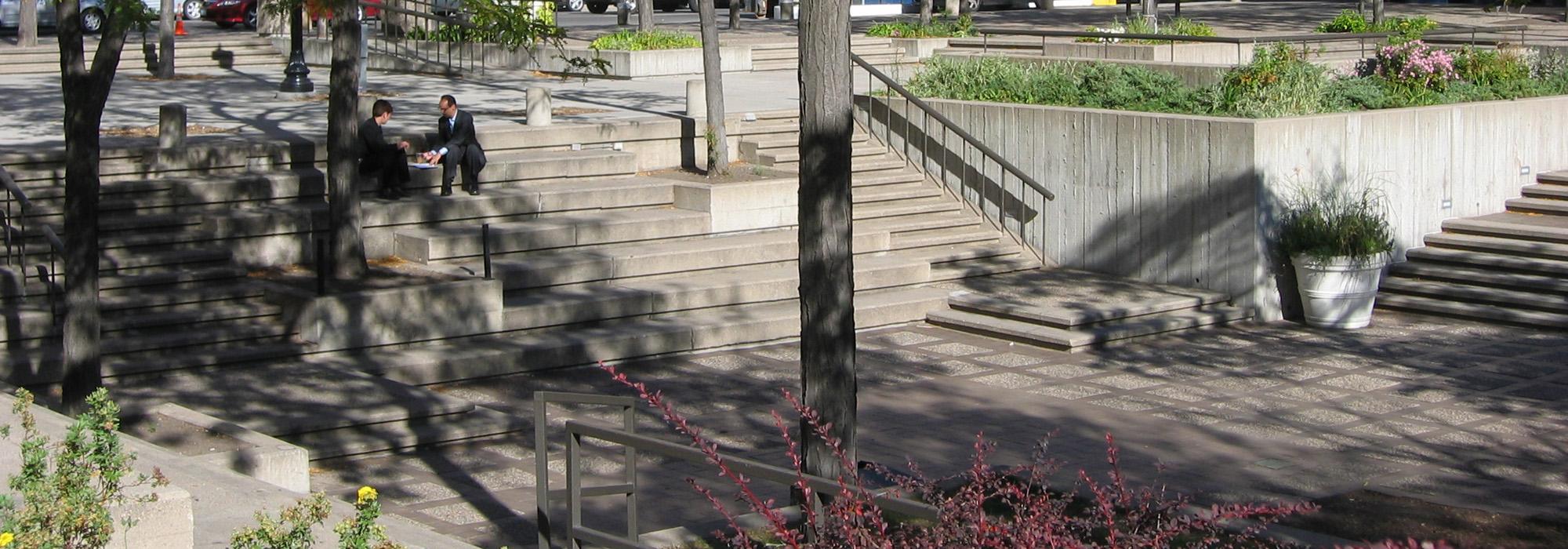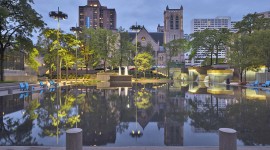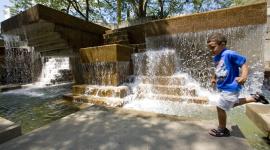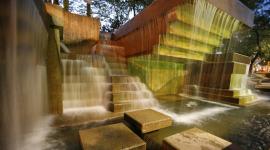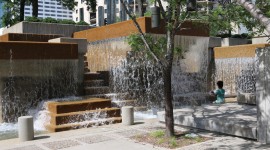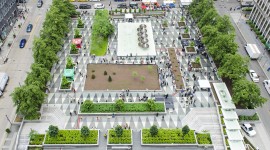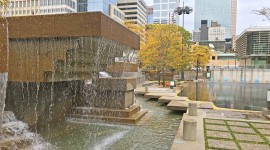City Official Says Peavey Plaza Should be Demolished Because Unnamed Funders Want "More Razzmatazz"
Media Contact: Nord Wennerstrom | T: 202.255.7076 | E: nord@tclf.org
City Official Says Nationally Recognized Modernist Icon Peavey Plaza Should be Demolished Because Unnamed Funders of new plaza want "More Razzmatazz"
Washington, DC (May 17, 2012) – Beth Grosen, a senior project advisor for the City of Minneapolis, said in an interview today on Minnesota Public Radio that Peavey Plaza, a nationally recognized modernist icon that has been determined eligible to the National Register of Historic Places, should be demolished because unnamed funders of a new plaza want “more razzmatazz.” Are the City and Grosen saying “razzmatazz” is now a qualification for the redesign of Peavey Plaza? Are the City and Grosen saying a perceived lack of “razzmatazz” is now a justification for the demolition of what the City concedes is a historic resource?
Grosen signed the City’s demolition permit application for Peavey Plaza request that states, in part:
Funders will require tangible enhancement of the plaza’s design in terms of aesthetics, accessibility, safety function, function, infrastructure, and an economically sustainable operating model for the future. Funders will not contribute millions of dollars to restore the plaza to its original design because it cannot address these issues adequately. (Application for Demolition of Historic Resource Heritage Preservation Commission. P. B4)
To date, the City has not revealed the names of the potential private funders who would appear to veto power over, and want, according to Grosen, more “razzmatazz’ in public space. This is consistent with the City’s lack of disclosure throughout the design process. The City says four final design options were developed (at public expense), yet only one – a new design called the Commons – was made public; the City says four budgets for those final designs were developed (at public expense), yet only one – a “replacement” or essentially a replication of Peavey – was made public. The City says the “replacement” budget of $8.7 million was the most expensive, one reason for that scheme’s disqualification. However, more than $2 million of the “replacement” budget goes to replace things not currently at Peavey Plaza. Are all of the budgets developed by the same contractor, Mortenson Construction, similarly flawed? The City points to the Community Engagement Committee (CEC), which provided input into the design process, as being representative of the community at large, but CEC membership was determined by officials at Orchestra Hall (which abuts the Plaza and is undergoing a $45 million expansion/renovation).
In written testimony submitted yesterday to the Minneapolis City Council’s Zoning and Planning Committee, which is meeting this morning to consider the City’s appeal to the Heritage Preservation Commission April 17, 2012 8-1 vote delaying demolition of Peavey Plaza, The Cultural Landscape Foundation said:
The City’s lack of/selective disclosure of information has created confusion about the facts in the case, an inability to do any comparative analysis of design options and budgets, and ultimately doubt about the legitimacy and transparency of the design selection process itself.
Peavey Plaza’s original landscape architect, M. Paul Friedberg, at TCLF’s request, created pro bono a new design concept for Peavey Plaza’s revitalization. The plan addresses the city’s many concerns and is accompanied by an itemized budget. The budget for the Commons has doubled from initial estimates of $4-5 million to a current $8-10 million, though an itemized budget, developed at public expense, has not been made public.
About The Cultural Landscape Foundation
The Cultural Landscape Foundation provides people with the ability to see, understand and value landscape architecture and its practitioners, in the way many people have learned to do with buildings and their designers. Through its Web site, lectures, outreach and publishing, TCLF broadens the support and understanding for cultural landscapes nationwide to help safeguard our priceless heritage for future generations.



